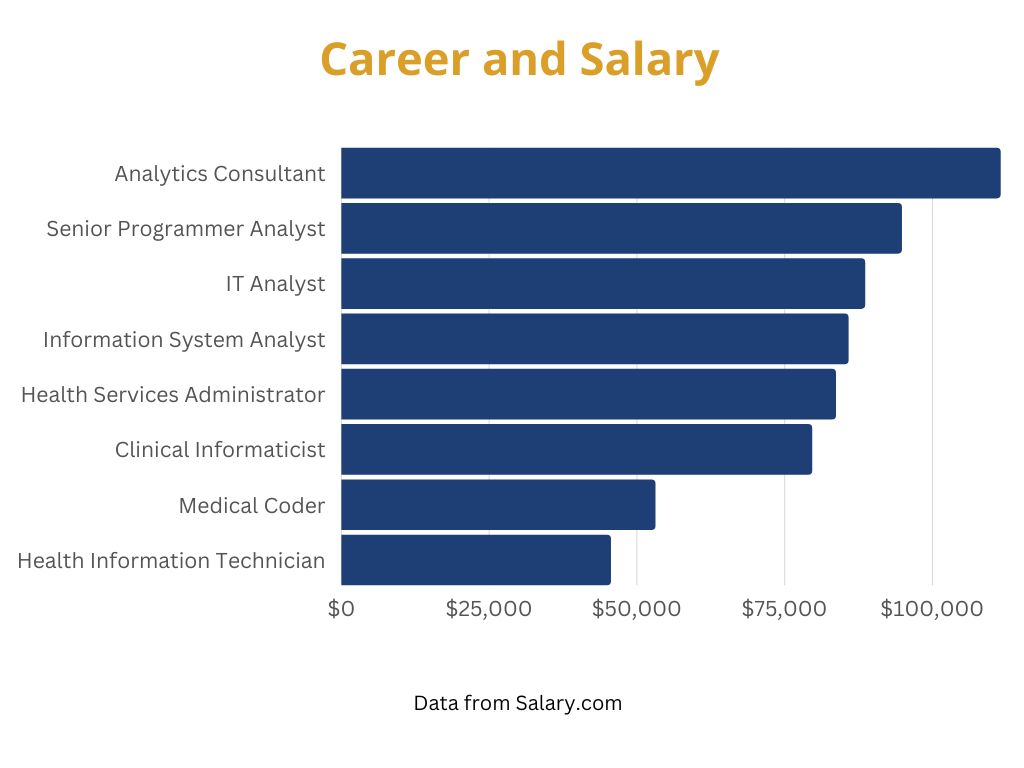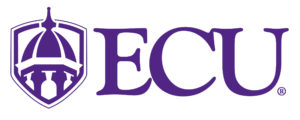2023 Guide to the Best Online Health Information Technology Degrees

Online Health Information Technology degrees have become increasingly popular in recent years as the healthcare industry has rapidly shifted towards digitalization. Health Information Technology (HIT) focuses on managing and analyzing health data through technology and has emerged as a crucial component of modern healthcare systems. As the demand for professionals with HIT expertise grows, more and more universities are offering online degree programs in this field to meet the needs of students seeking a flexible and convenient way to obtain a higher education.
An online degree in health information technology can open up many career paths for you. Online health information technology degrees enable many eager students like yourself to contribute to personal health records, electronic health records, and electronic prescriptions, as well as the privacy and security of patients. In this article, we will outline the benefits of pursuing an online Health Information Technology degree and the top programs available today. At the end, we list ten schools with high-quality online degree offerings.
Best Online Health Information Technology Degrees
Health information technologies are any computerized system a healthcare facility might use to store patient data, track records, supplies, procedures, schedules, etc. Because healthcare professionals typically employ a wide range of digital systems, information tech specialists are in ever-increasing demand. Now is a great time to enter this potentially-rich field, as job security and growth opportunities will only increase.
The field of health information technology is rapidly expanding, with practically unlimited room for growth and opportunities. For this reason, there is an absolute wealth of online programs available to choose from. Naturally, this makes sorting out the wheat from the chaff difficult. That’s why we’ve taken the time to assemble all of the relevant information on this topic, including a verified list of the best online health information technology degrees in the field.
Our list is made up of respected, reputable, and proven schools that offer such programs. With names like CUNY, Purdue, Louisiana Tech, and more, you can rest assured that these are quality programs from winning institutions. You’ll also notice that we only list BA programs. This is to ensure each of our selections is accessible to a broad audience while ensuring quality pedagogical standards.
Each will come with a wealth of attractive student resources, opportunities to make valuable connections, and access to plenty of employers eager to let students put their new online health information technology degrees to good use.
Specializations for Online Health Information Technology Degrees
There are several common specializations available for students pursuing an online Health Information Technology degree. Some of the most popular specializations include:
- Health Informatics: This specialization uses technology and data analytics to improve patient care and outcomes.
- Health Information Management: This specialization focuses on the collection, organization, and management of patient health information to ensure accuracy, confidentiality, and compliance with regulations.
- Healthcare Analytics: This specialization uses data to inform decision-making and improve operations.
- Health Information Technology Security: This specialization protects patient health information from cyber threats and breaches.
- Health Information Technology Consulting: This specialization focuses on helping healthcare organizations implement and optimize HIT systems to improve efficiency and patient care.
These specializations provide students with the knowledge and skills needed to succeed in specific areas of the HIT industry and can lead to diverse career opportunities upon graduation.
Career and Salary Information for Online Health Information Technology Degrees
People enter the health information field for several reasons. Many have a passion for digital technology. Also, many recognize the rapid growth of the industry and the availability of lucrative job opportunities. The BLS predicts the industry will grow by 17% over the next ten years. Indeed, HIT has excellent job security.
Graduates of online Health Information Technology degree programs can pursue various career paths within the healthcare industry. Here are a few great options, along with average annual salaries.

| Profession | Average Salary |
| Analytics Consultant | $111,558 |
| Senior Programmer Analyst | $94,838 |
| IT Analyst | $88,621 |
| Information System Analyst | $85,806 |
| Health Services Administrator | $83,673 |
| Clinical Informaticist | $79,647 |
| Medical Coder | $53,108 |
| Health Information Technician | $45,573 |
Overall, an online Health Information Technology degree can lead to a rewarding and lucrative career in a growing field. Graduates have the opportunity to make a positive impact on healthcare delivery and patient outcomes while also enjoying job stability and competitive salaries.
Curriculum and Courses for Online Health Information Technology Degrees
The curriculum for an online Health Information Technology degree program can vary depending on the specific school and program, but there are some common courses that students can expect to take. Here are some examples.
Health Information Management
This course covers the principles of health information management, including data collection, storage, and retrieval.
Health Informatics
This course uses technology to manage and analyze health data.
Medical Terminology
This course covers the vocabulary used in healthcare settings, including medical terms, abbreviations, and symbols.
Healthcare Law and Ethics
This course covers legal and ethical issues in healthcare, such as patient privacy and confidentiality, medical malpractice, and informed consent.
Healthcare Quality Management
This course covers methods for improving the quality of healthcare delivery, such as continuous improvement processes and benchmarking.
Healthcare Data Analysis
This course covers statistical methods for analyzing healthcare data, such as regression analysis and hypothesis testing.
Health Information Technology Security
This course covers cybersecurity principles and how they apply to healthcare settings.
Health IT Project Management
This course covers project management principles and techniques for implementing HIT systems.
These courses provide students with the knowledge and skills needed to succeed in the HIT industry and prepare them for healthcare management, data analysis, and information technology careers.
Admissions Requirements for Online Health Information Technology Degrees
Here are some standard requirements that students can expect:
- High school diploma or equivalent: Students must have a high school diploma or a GED, to be eligible for admission.
- Transcripts: Students must provide official transcripts from all high schools and colleges attended.
- Minimum GPA: Many programs have a minimum GPA requirement, typically around 2.5 or 3.0.
- Prerequisite courses: Some programs require students to complete prerequisite courses in anatomy and physiology, medical terminology, and statistics.
- Test scores: Some programs require students to submit standardized test scores, like the ACT or SAT.
- Letters of recommendation: Some programs require students to provide letters of recommendation from teachers, employers, or other professionals.
- Personal statement: Some programs require students to submit a personal statement exploring interest in the program and career goals.
It’s important to note that some online Health Information Technology degree programs may also have additional requirements, such as professional experience in the healthcare industry or specific technical skills. Prospective students should carefully review the admissions requirements for each program they are considering and contact the school or program directly with any questions.
Accreditation for Online Health Information Technology Degrees

When selecting an online degree program in Health Information Technology, it is crucial to take into account the accreditation status. Accreditation is a voluntary evaluation conducted by an external body to assess the quality of an institution or program, and it is granted only if certain criteria are met.
There are two primary types of accreditation: institutional and programmatic. Institutional accreditation evaluates the overall quality of an institution, while programmatic accreditation evaluates the quality of specific programs, such as Health Information Technology.
Institutional accreditation is awarded at the national or regional level. We recommend schools that are regionally accredited. Their standards tend to be higher and more respected than nationally accredited schools. Here are the seven regional accrediting bodies:
- Accrediting Commission for Community and Junior Colleges (ACCJC) Western Association of Schools and Colleges
- WASC Senior College and University Commission (WSCUC)
- Higher Learning Commission (HLC)
- Middle States Commission on Higher Education (MSCHE)
- New England Commission of Higher Education (NECHE)
- Northwest Commission on Colleges and Universities (NWCCU)
- Southern Association of Colleges and Schools Commission on Colleges (SACSCOC)
The Commission on Accreditation for Health Informatics and Information Management Education (CAHIIM) is the main accrediting body for Health Information Technology programs. CAHIIM accredits programs at the associate, baccalaureate, and graduate degree levels.
Accreditation ensures that a degree meets high standards for curriculum, faculty qualifications, and student outcomes. It also ensures that graduates of the program are eligible to sit for professional certification exams, such as the Registered Health Information Technician (RHIT) or Registered Health Information Administrator (RHIA) exams.
Financial Aid & Scholarships for Online Health Information Technology Degrees
Financial aid and scholarships can make an online Health Information Technology degree more affordable for students. Here are some common types of financial aid and scholarships available to students:
- Federal student aid: Students can apply for federal student aid by filling out the Free Application for Federal Student Aid (FAFSA). This can include grants, work-study programs, and federal student loans.
- State aid: Some states offer financial aid programs, such as the California Health Professions Education Foundation, for students pursuing healthcare degrees.
- Institutional aid: Many schools offer financial aid programs, such as scholarships, grants, and work-study programs.
- Private scholarships: Many private organizations offer scholarships specifically for students pursuing degrees in healthcare, such as the Health Information Management Systems Society (HIMSS) Foundation.
- Employer tuition reimbursement: Some employers offer tuition reimbursement programs for employees pursuing healthcare degrees, so it’s worth checking with your employer to see if this is an option.
When researching online Health Information Technology degree programs, it’s important to check with the school’s financial aid office to see what types of aid are available. It’s also a good idea to research private scholarship opportunities and to check with professional organizations in the field for scholarship options.
What Can You Do With an Online Health Information Technology Degree?
You can access a long list of entry-level positions with one or more online health information technology degrees in HIT. Of course, the amount of compensation and responsibility you aspire to is only a matter of choosing a degree program commensurate with your goals. As you have seen, there are AA, BS, and Masters level degree programs out there just waiting for you to enroll.
Entry-level position examples include
- Health Information Technician
- Medical Records Technician
- Medical Records Analyst
- Medical Records Coordinator
- Medical Coder
- Medical Billing Specialist
The precise duties of each role will vary according to the position, the type/s of technology used, and the state and organization where you work. Some responsibilities will also depend on state and federal regulations that apply to your work area. Nevertheless, all of the positions listed above and higher level HIT positions involve the care, keeping, management, and organization of patients, procedures, and the organization’s activities.
It’s crucial to remember that patient confidentiality is and always will be a top priority. When you study for your online degree, your instructors and advisors will ensure that every student understands this. Patient confidentiality is heavily protected by laws all across the nation and beyond.
Data entry, data confirmation, and data retrieval are among some of the common daily tasks that you can expect to need to attend to in your role as a HIT professional. Much of this information will be basic patient information like name, contact info, and the like. But it is also likely to involve the use of coding systems to accurately record diagnoses, medical testing procedures, and treatment methods.
After completing your online degree program, you may find employment in a hospital, doctor’s office, insurance agency, health clinic, or health technology company. All of these types of organizations and more employ HIT professionals. There is so much opportunity out there, and we’re confident you’ll be able to put your degree to work quickly.
How Much Does an Online Health Information Technology Degree Cost?

The cost of your HIT degree will depend on several factors, including the state where you study, whether or not you are an out-of-state student, whether or not the tuition is priced at a flat rate, the relevant technology fees, and of course, the reputation of the school where you take your degree.
According to the Education Data Initiative, the average online bachelor’s degree is rather affordable at $51,091! That said, students who attend online public schools in their own state can expect to pay around $38,500 for an undergraduate degree. Private schools tend to have a higher tuition. The average online undergraduate degree from a private college is just over $60,000.
Considering the job outlook for this field, the tuition price is excellent news. It means you can get the health information technology degree of your choice at an affordable price, no matter what level of expertise you are aiming for.
How Long Does it Take to Get an Online Health Information Technology Degree?
The time it takes to earn an online undergraduate degree in Health Information Technology depends on several factors, such as the program requirements, the student’s pace, and any prior college credit or transfer credits that the student may have. An online bachelor’s degree program typically takes four years to complete if a student enrolls full-time and completes the program without any breaks or interruptions. However, some programs may offer accelerated options that allow students to earn their degree in as little as two to three years.
Additionally, students who have prior college credits or can take more courses each semester may be able to complete their degree faster. Ultimately, the time it takes to earn an online undergraduate degree in Health Information Technology will depend on the individual student’s circumstances and the program requirements they choose.
Are There Affordable Online Health Information Technology Degrees?
Yes, there are many affordable online health information technology degrees available. Here are some tips for finding an affordable online health information technology degree:
Research various institutions
Look into different institutions that offer online health information technology programs and compare their tuition costs.
Consider public institutions
Public institutions often offer lower tuition rates than private institutions, and some may offer in-state tuition rates for online students regardless of location.
Look for scholarships and grants
Many institutions offer scholarships and grants for students pursuing health information technology degrees. Research and apply for as many as you can to help offset the cost of tuition.
Choose an associate degree program
An associate degree program in health information technology is usually less expensive than a bachelor’s degree.
Consider credit transfer
If you have previously earned college credits, find out if you can transfer those credits to an online health information technology program. This can help you save money by reducing the credits you need to complete the degree.
It’s important to note that while an affordable online health information technology degree can help you save money, choosing a program that meets your educational and career goals and is accredited by a reputable organization is still important.
Is an Online Health Information Technology Degree Worth it?

Whether an online health information technology degree is worth it depends on various factors, such as your career goals, the specific program you choose, and the institution’s reputation.
Potential benefits of pursuing an online health information technology degree
- Career opportunities: A degree in health information technology can open up many career opportunities in the healthcare industry, such as health information management, healthcare administration, and medical coding and billing.
- High demand: With the growing healthcare industry, there is a high demand for professionals with expertise in health information technology. This means there is a high likelihood of finding a job after graduation.
- Flexibility: Online programs offer the flexibility to study and work simultaneously, making it possible to balance education and work.
- Cost-effective: Online programs are often more cost-effective than traditional, on-campus programs, as they eliminate the need for commuting and housing costs.
Potential drawbacks to pursuing an online health information technology degree
- Lack of hands-on experience: Some programs may not offer enough opportunities for hands-on experience, which can be important in the healthcare field.
- Limited networking opportunities: Online programs may not provide the same opportunities for networking and building connections with professionals in the field.
- Limited interaction with faculty: Online programs may not offer as much interaction with faculty as traditional, on-campus programs, which can be a disadvantage if you need guidance or mentorship.
Overall, if you are interested in pursuing a career in health information technology and have weighed the potential benefits and drawbacks, an online degree may be worth it. However, it is important to research the program and institution thoroughly before making a decision.
10 of the Best Schools Offering Online Health Information Technology Degrees
That brings us to our list of the best Health Information Technology online degree programs available. We are confident that any of these will serve most students well. The schools on this list are regionally accredited and provide superb online degrees. They are listed in alphabetical order.
1. CUNY School of Professional Studies (New York, NY)

The City University of New York’s BS in Health Information Management program is the most popular program of its kind in New York State. It is among the most comprehensive HIM degree programs available, offering complete online education access for optimal convenience. The registration deadline is June 20, 2023, for this New York, NY-based program.
2. Dakota State University (Madison, SD)

Located in Madison, SD, DSU’s HIIM BS degree program is a complete training program for those looking to master the management of medical records and the technology associated with this and similar tasks. DSU turns out professionals at a range of expertise levels, serving students, employers, and the local medical community.
3. Davenport University (Grand Rapids, MI)

Davenport University offers students the opportunity to make a difference in their communities with highly in-demand skills through their HIM degree programs. These programs focus on patient outcomes as rendered by superior info management. Students can expect to be sought after by competitive employers in the Grand Rapids area and beyond.
4. East Carolina University (Greenville, NC)

East Carolina University’s HIT BS program offers a complete training program in technical writing, tech & project management, capital and cost analysis, industrial supervision, statistical process control, and more. These disciplines make their program one of the most competitive in the nation, delivering high employment rates among successful graduates.
5. Fisher College (Boston, MA)

The BS in Health Information Management (HIM) offered by Fisher College caters to a vibrant student community located in a region with some of the nation’s best healthcare outcomes. Fisher College prioritizes student achievements in a similar vein to how the medical field prioritizes patient outcomes. Consequently, they have earned a solid reputation for producing graduates who are proficient and accomplished professionals.
6. Herzing University (Milwaukee, WI)

One of the most flexible HIM degree programs on our list, Herzing University’s health info management program comes in both AA and BS undergraduate pathways. Students can choose the level of expertise they wish to pursue. Many start with the AA program, get to work, and then complete further HIT training part-time. This type of approach to long-term education is increasing in popularity, and Herzing is proud to support it.
7. Indiana University (Indianapolis, IN)

An impressively comprehensive HIM program, IU’s coursework includes computer science, data organization & presentation, decision support, communications, medical terminology, ethics and law in healthcare, pharmacology, coding, and everything students need to succeed in this field. Successful graduates will be among the most competitive in the field with robust student support and employment services.
8. Louisiana Tech University (Ruston, LA)

LTU’s HIIM BS program is a 120-hour course with the option to attend its 39-hour Master of Health Informatics program. Both are accredited via the Commission on Accreditation for Health Informatics and Information Management (CAHIIM), making them among the most authoritative programs of their kind in the nation.
9. Purdue University (West Lafayette, IN)

In addition to bringing one of the most prestigious names in higher education to the field of HIM, Purdue offers one of the most competitive programs of its kind. Students will benefit from valuable on-the-job experience as they learn in a real healthcare facility or hospital. Students will complete a capstone project, demonstrating real skills which can be applied to real jobs upon graduation. This program is CAHIIM accredited.
10. University of Wisconsin – Madison (Madison, WI)

Wisconsin University’s HIMT Bachelor’s program is one of few such programs attainable at reputable institutions of higher learning which can be completed entirely online. While in-person training is in higher demand among employers, students benefit from greater access to education and faster program completion. This HIMT Bachelor’s program comes highly recommended for full-time workers seeking to further their career/education.
Getting Your Online Health and Information Technology Degree
Online health information technology degrees are becoming increasingly popular as the demand for qualified healthcare professionals grows. With a degree in this field, graduates can find job opportunities in hospitals, clinics, and other healthcare organizations. With the proper training and education, graduates of this program can become invaluable members of the healthcare team.
The online health information technology degree is an attractive option for those looking to enter healthcare or advance their careers. With courses covering topics such as medical coding and billing, database management, and clinical informatics, students will be prepared to take on various roles within the industry. Furthermore, online programs offer flexibility for those who cannot commit to traditional classroom-based learning due to work or family obligations. The return on investment is high for online health information technology degrees. Good luck as you launch into your lucrative career!
Notable Resources
2023 Guide to the Best Online Master’s in Marriage and Family Therapy
